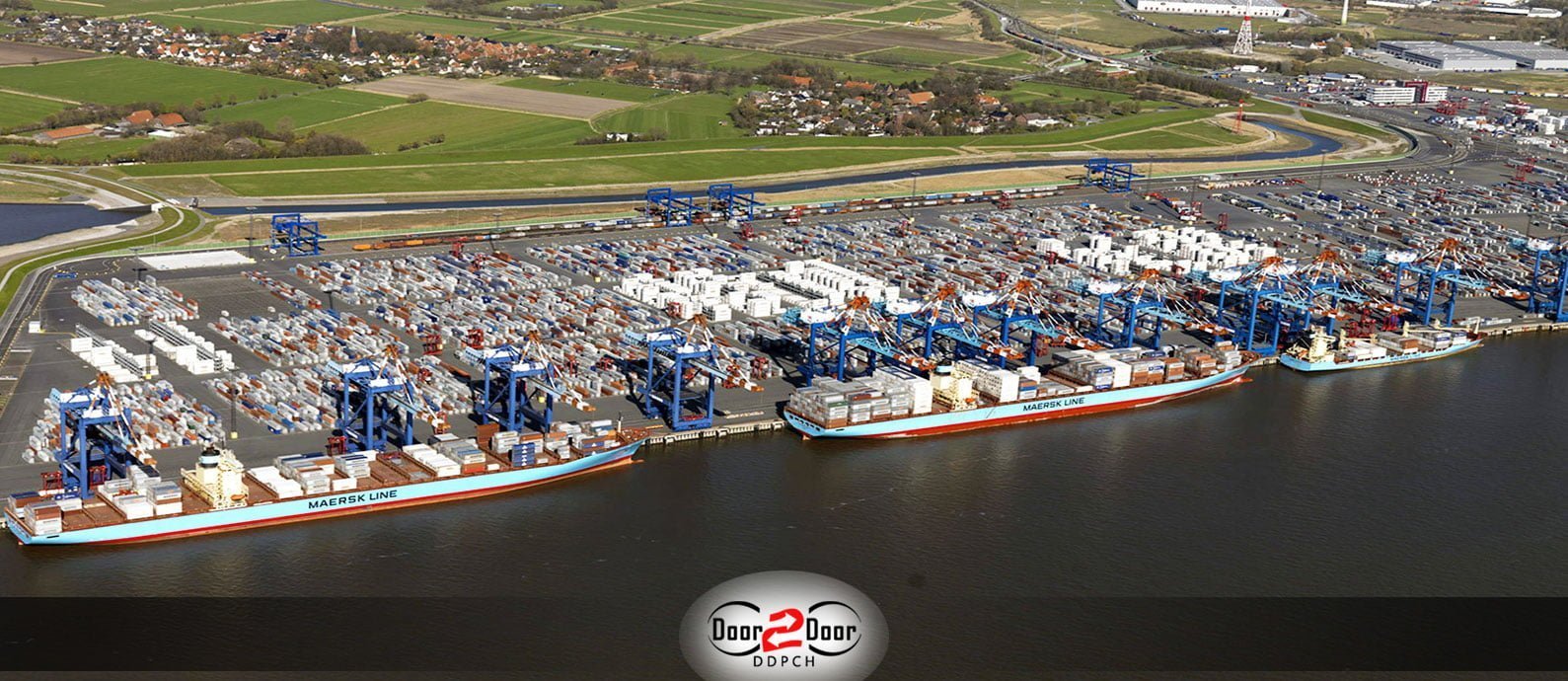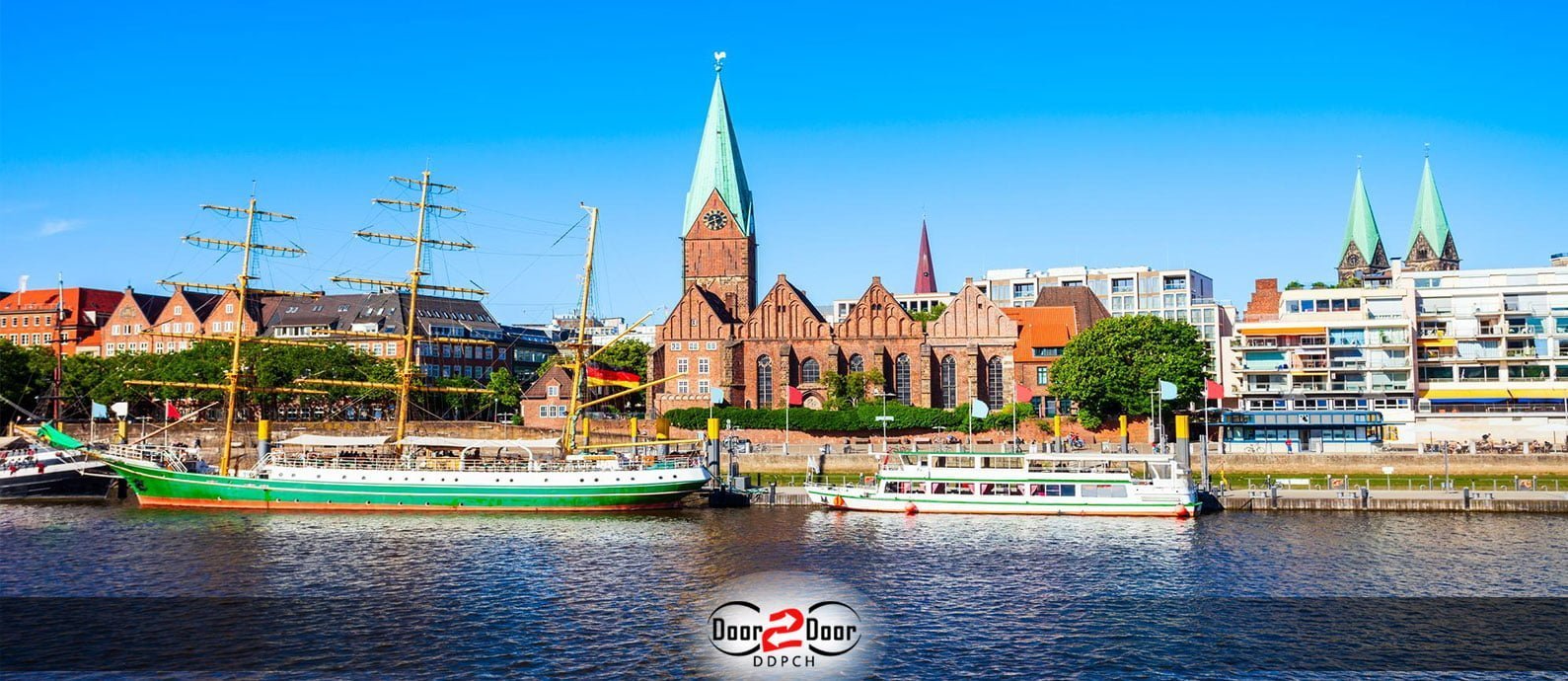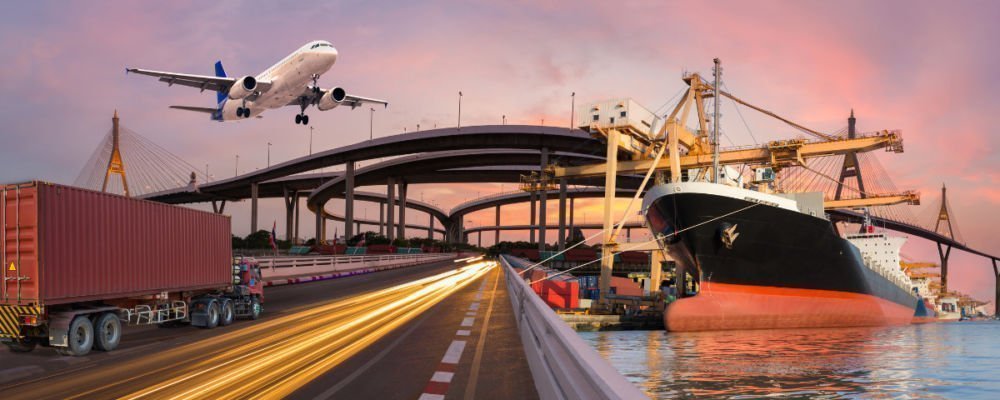Introduction for Shipping from China to Bremerhaven
Starting the process of shipping from China to Bremerhaven, a key port in Germany, is a significant step in international trade. This comprehensive guide aims to provide you with invaluable insights and practical advice on navigating this intricate journey successfully. Shipping to Bremerhaven is a critical part of the broader endeavor of shipping from china to Germany, a powerhouse in European commerce. Understanding the intricacies, potential pitfalls, and best practices involved in this process is crucial to ensure a smooth and efficient shipping experience.
DDPCH has meticulously prepared this comprehensive guide to facilitate your shipping journey from China to Bremerhaven, ensuring a seamless and successful trade experience. From selecting the right shipping method to handling customs clearance and avoiding common mistakes, this guide covers essential aspects to facilitate the safe and timely arrival of your cargo in Bremerhaven, making your international trade ventures successful and cost-effective.
Factors to consider when shipping from China to Bremerhaven
When shipping from China to Bremerhaven, several crucial factors must be considered to ensure a smooth and efficient process. Firstly, Bremerhaven’s strategic location as one of Germany’s primary maritime gateways makes it essential to choose a reliable shipping route and carrier that can efficiently connect the two regions. Additionally, customs regulations and import/export documentation should be thoroughly researched and complied with to prevent delays or complications at the port of entry. Consideration of cargo volume, container size, and shipping methods is crucial for cost-effectiveness
Shipping Route and Carrier Selection
When selecting a shipping route, it’s important to consider the specific needs of your cargo. Bremerhaven’s location as a major European port offers several routing options, including routes through the Suez Canal or around the Cape of Good Hope. The choice of route can impact transit times, costs, and potential risks such as piracy in certain regions. Additionally, research carriers thoroughly, taking into account their track record for on-time deliveries, vessel safety, and customer service. A well-established carrier with a strong reputation can offer reliability and peace of mind.
Customs and Documentation
Navigating customs and documentation requirements is a critical aspect of international shipping. Understanding the specific customs regulations and import/export documentation required for your goods is essential. It’s often helpful to work with a customs broker or logistics expert who is well-versed in the regulations of both China and Germany. Ensuring that all paperwork, such as customs declarations, permits, and certificates, is accurate and complete is crucial to prevent any clearance delays or fines.
Cargo Volume and Container Size
Accurate assessment of your cargo’s size and volume is key to selecting the right container type. Containers come in various sizes, including standard 20-foot and 40-foot containers, as well as specialized containers for specific cargo types like refrigerated goods or oversized equipment. Efficiently utilizing container space can help minimize shipping costs and reduce the risk of damage during transit. It’s also important to consider packaging and securing your cargo within the chosen container to prevent shifting and damage during transit.
Shipping Method and Transit Times
Choosing the appropriate shipping method depends on factors such as the urgency of delivery, the type of goods being transported, and budget constraints. Sea freight is often the most economical choice for long-distance shipments, but it generally has longer transit times compared to air or rail freight. Balancing cost and transit time is crucial to meet business needs and customer expectations. Additionally, consider factors like seasonal weather patterns and potential disruptions that could affect transit times when planning your shipment.
These factors play a critical role in the success of your shipment from China to Bremerhaven. By carefully considering and addressing each of them, you can optimize your logistics process, minimize risks, and ensure a smooth and efficient transit of your goods to their destination

Choosing the best shipping method for Bremerhaven
Selecting the optimal shipping method for Bremerhaven hinges on a complex interplay of factors, each with a distinct impact on your logistics strategy. First and foremost, the nature of your cargo, its volume, and its urgency profoundly influence the choice. Sea freight, typically the most cost-effective for large volumes, offers economies of scale but entails longer transit times. On the other hand, air freight is swift and ideal for time-sensitive goods, but it comes at a premium cost. Additionally, rail freight presents an intermediate option.
Secondly, market demand and customer expectations can significantly affect your choice, as timely delivery can be a competitive advantage. Lastly, considerations like environmental sustainability, regulatory compliance, and budget constraints also weigh in, making the selection of the best shipping method for Bremerhaven a multifaceted decision that demands a careful balance of these factors to ensure both efficiency and profitability in your supply chain.
Air freight from China to Bremerhaven
Air freight from China to Bremerhaven is a vital link in the global supply chain, providing an expedited and efficient means of transporting goods. While Bremerhaven itself does not have cargo airports, the nearby Bremen Airport and Hamburg Airport serve as crucial hubs for air cargo operations. Bremen Airport (Flughafen Bremen) and Hamburg Airport (Flughafen Hamburg) offer excellent connectivity, allowing cargo to be swiftly transported to and from Bremerhaven via road or rail.
This option is particularly advantageous for time-sensitive shipments, high-value commodities, or products with specific temperature or handling requirements. Despite the higher costs associated with air freight, the speed and reliability it offers make it an essential choice for businesses seeking to meet demanding delivery schedules and maintain a competitive edge in the market.
Sea freight from China to Bremerhaven
Sea freight from China to Bremerhaven is a pivotal mode of transportation for international trade, providing a cost-effective and efficient means of shipping goods. Bremerhaven, as one of Europe’s major ports, offers excellent infrastructure and connectivity for sea cargo operations. The port boasts state-of-the-art container handling facilities, ample storage options, and efficient customs clearance procedures, making it a preferred destination for businesses seeking to import goods into Germany and the broader European market. Furthermore, its strategic location on the North Sea provides easy access to major European markets, including Germany, the Netherlands, and the rest of the European Union. The consistent and reliable shipping schedules and the ability to accommodate various types of cargo, including containerized and breakbulk shipments, make Bremerhaven a prime choice for sea freight.
DDP(Delivered Duty Paid) from China to Bremerhaven
DDP, or Delivered Duty Paid, is a comprehensive shipping arrangement from China to Bremerhaven that offers numerous advantages to businesses. Under a DDP agreement, the seller takes on the responsibility for all aspects of the shipment, including transport, customs clearance, and duty payment, ensuring a hassle-free experience for the buyer in Bremerhaven. This method significantly reduces the logistical burden on the importer, as they don’t have to navigate complex customs procedures or worry about unexpected fees.
DDP is especially beneficial for high-value or time-sensitive cargo, as it streamlines the supply chain and minimizes the risk of delays or unexpected costs, ultimately providing a seamless and cost-effective way to get goods from China to Bremerhaven while enhancing customer satisfaction. It is widely used in industries such as electronics, automotive, and fashion, where predictability and reliability in shipping are paramount.
Express shipping from China to Bremerhaven
Express shipping from China to Bremerhaven is a swift and efficient logistics solution for businesses looking to expedite the transportation of goods between these two regions. Typically offered by courier companies like DHL, FedEx, and UPS, express shipping provides fast transit times, often in just a matter of days. This method is ideal for time-sensitive shipments, high-value products, or urgent business needs. Express shipping services include door-to-door delivery, customs clearance, and real-time tracking, ensuring that shipments reach their destination promptly and securely.
While it tends to be more expensive than traditional sea or air freight, the speed and reliability of express shipping make it a valuable option for companies seeking to maintain tight delivery schedules and meet customer demands in Bremerhaven and beyond.
Rail freight from China to Bremerhaven
Rail freight from China to Bremerhaven offers a unique and efficient transportation option that combines the advantages of sea and land routes. The primary rail route, known as the China-Europe Railway, stretches from various Chinese cities to European destinations, including Bremerhaven. This route traverses several countries, including Kazakhstan, Russia, and Poland, before reaching Germany. The benefits of rail freight include faster transit times compared to sea freight, making it a more time-efficient option while still being more cost-effective than air freight.
Additionally, rail freight is a reliable mode of transport that is less affected by weather-related disruptions compared to sea routes. It also allows for the transportation of a wide range of cargo types, including containers and bulk goods. Overall, rail freight from China to Bremerhaven is a valuable alternative for businesses looking to balance speed, cost, and reliability in their supply chain.
Rail freight from China to Bremerhaven
Rail freight from China to Bremerhaven offers several benefits, especially when compared to traditional sea freight, and is particularly relevant considering the UK’s island geography. The route typically involves trains departing from various Chinese cities, often passing through Kazakhstan, Russia, Belarus, and Poland before reaching Germany and ultimately Bremerhaven. The benefits of this route include faster transit times compared to sea freight, which can take several weeks. Rail freight is especially advantageous for businesses with time-sensitive shipments or those looking to reduce the environmental impact associated with air travel.
Additionally, it offers a more predictable and reliable schedule compared to sea routes, which can be affected by weather and congestion. Considering the UK’s island geography, rail freight to Bremerhaven can be an efficient option for reaching the mainland of Europe before further distribution to the UK, helping businesses streamline their supply chains.
Air Freight vs. Sea Freight to Bremerhaven
DDPCH recommends air freight for time-sensitive or high-value cargo, ensuring rapid delivery to Bremerhaven while providing comprehensive logistics solutions that simplify the process, including customs clearance and duty payment. Imagine you need to ship a small shipment of high-end electronics from Shanghai to Bremerhaven urgently.
Air freight: This rapid transit ensures timely delivery, reducing the risk of supply chain disruptions. Moreover, air freight is particularly suited for high-value goods, offering the security and precision needed for items like electronics.
- Speed: Air freight offers rapid delivery, often taking just a few days for shipments to reach Bremerhaven, ensuring timely delivery for time-sensitive goods.
- Suitable for High-Value Goods: It’s the preferred choice for valuable and time-sensitive products like high-end electronics, providing security and precision in handling.
- Reduced Warehousing Costs: Shorter transit times mean less time spent in storage, resulting in cost savings on warehousing fees.
Drawbacks:
- Higher Cost: Air freight is typically more expensive per unit of weight compared to sea freight.
- Limited Capacity: Not suitable for bulky or oversized cargo.
Let’s say you’re shipping a large quantity of textiles, such as clothing or fabrics, from Guangzhou to Bremerhaven for a retail store.
Sea freight: Sea freight is often more economical, especially for larger shipments with longer lead times, making it a preferred option for businesses focused on cost efficiency. Its high volume capacity is particularly advantageous when dealing with goods that occupy a significant amount of space, such as textiles or furniture.
- Cost-Effective: Sea freight is a cost-efficient option, making it ideal for larger shipments with longer lead times.
- High Volume Capacity: It’s well-suited for goods with substantial volume, such as textiles or furniture, as it can accommodate a large quantity of cargo in a single shipment.
- Environmentally Friendly: Sea freight emits lower emissions per unit of cargo compared to air travel, contributing to a greener supply chain.
Drawbacks:
- Longer Transit Times: Sea freight can take several weeks, which may not be suitable for time-sensitive goods or businesses with strict delivery schedules.
- Complex Logistics: It involves multiple handling steps, including port operations and potential customs procedures, necessitating careful planning and management.
The choice between air and sea freight to Bremerhaven depends on your cargo’s nature, urgency, and budget. Air freight is swift but comes at a premium, while sea freight is cost-effective but slower. Consider these factors carefully to make the best choice for your shipping needs.
Estimated Costs and Transit Time for Shipping to Bremerhaven
Choosing the right shipping method for shipping from China to Bremerhaven involves a trade-off between cost, speed, and cargo type. Air freight offers rapid delivery suitable for high-value or time-sensitive items, but it comes at a premium cost and is limited in capacity. Sea freight, cost-effective for larger shipments, is ideal for high-volume or bulky cargo and is environmentally friendly but involves longer transit times.
Rail freight strikes a balance between cost and speed, making it suitable for various cargo types. Express shipping is the fastest option but can be costly. DDP simplifies shipping with comprehensive solutions, while road freight is efficient for overland transport within Europe. The choice depends on the specific needs of the cargo and the logistics strategy of the business.
These estimates offer a comprehensive view of the costs and transit times associated with a variety of shipping methods to Bremerhaven. However, it’s essential to consult with specific carriers and logistics providers to obtain accurate and up-to-date pricing and transit time information tailored to your specific shipping needs and cargo characteristics.
Essential Documentation for Shipping to Bremerhaven
DDPCH recognizes the importance of essential documentation when shipping from China to Bremerhaven. To ensure a smooth and compliant shipping process, key documents must be prepared meticulously. These include the commercial invoice detailing the goods, their value, and the agreed terms of sale; the bill of lading, which serves as evidence of the cargo’s receipt and contract of carriage; and the packing list, specifying the contents and quantities of each package. Additionally, a certificate of origin may be required to determine the country of manufacture, aiding in trade agreement eligibility. Customs authorities often mandate a customs declaration form, providing information on the goods’ nature and value. Lastly, relevant licenses or permits, such as for controlled goods, must be obtained if applicable. Here’s an explanation of each of the essential documents required for shipping to Bremerhaven:
- Commercial Invoice: The commercial invoice is a detailed document that provides crucial information about the goods being shipped. It typically includes the description of the goods, their quantity, unit prices, total value, and any applicable taxes or fees. This document serves as a legal record of the transaction, helps customs authorities assess duties and taxes, and is essential for accurate customs clearance.
- Bill of Lading: The bill of lading is a contract between the shipper and the carrier (usually a shipping company) that acknowledges receipt of the goods and outlines the terms of their transportation. It serves as both a receipt and a title document, indicating ownership of the goods during transit. The bill of lading also provides details about the shipment’s origin, destination, route, and carrier’s responsibilities.
- Packing List: A packing list provides a comprehensive inventory of the cargo, specifying the contents of each package, their quantities, dimensions, weight, and packaging details. This document aids in cargo inspection, helps with customs clearance, and assists in verifying the contents against the commercial invoice. It’s particularly valuable for ensuring accurate and efficient handling of goods.
- Certificate of Origin: The certificate of origin is a document that verifies the country where the goods were produced or manufactured. It’s crucial for determining eligibility for trade agreements, preferential tariff rates, or any import restrictions imposed on specific countries. Customs authorities often require this certificate to confirm the origin of the goods.
- Customs Declaration Form: The customs declaration form provides essential information about the nature, value, and classification of the goods being imported. It is submitted to customs authorities to declare the cargo, assess duties and taxes, and ensure compliance with import regulations. Accurate completion of this form is vital to avoid delays and potential penalties.
- Required Licenses/Permits: Depending on the nature of the goods being shipped, certain licenses or permits may be necessary to comply with import regulations. These documents demonstrate that the goods meet specific requirements, such as safety standards or environmental regulations. Failing to obtain the required licenses or permits can result in customs issues and delays.
These essential documents are fundamental for proper documentation, customs clearance, and adherence to regulations when shipping goods to Bremerhaven or any international destination. They play a critical role in ensuring the legality and smooth transit of cargo across borders.

Reviewing Top Shipping Providers for Bremerhaven
Reviewing top shipping providers for shipping from China to Bremerhaven involves evaluating their track record, reliability, and range of services to ensure a seamless and efficient logistics experience. Forerunner, as a shipping provider from China to Bremerhaven, offers numerous benefits including extensive expertise in various shipping methods (air freight, sea freight, rail freight, and road freight) tailored to specific cargo requirements, ensuring cost-effectiveness and timely deliveries. Here’s an expanded overview of each shipping provider for Bremerhaven:
- Maersk Line: Maersk Line, a part of the Maersk Group, is a global leader in container shipping and logistics. Their extensive services cover ocean transportation, terminal operations, and logistics solutions. Website: maersk.com
- CMA CGM Group: The CMA CGM Group is a major player in the maritime industry, offering a wide range of container shipping and logistics services. Their vast network includes routes to Bremerhaven and other global destinations. Website: cma-cgm.com
- DB Schenker: DB Schenker, a division of Deutsche Bahn, is a well-established logistics provider with a comprehensive suite of services, including land, air, and ocean freight. Their expertise extends to rail and road freight solutions to and from Bremerhaven. Website: dbschenker.com
- Kuehne + Nagel: Kuehne + Nagel is a globally recognized logistics company offering a wide range of supply chain solutions, including sea freight services to Bremerhaven. Their expertise in contract logistics and integrated solutions is notable. Website: home.kuehne-nagel.com
- DHL Global Forwarding: DHL Global Forwarding, a division of the Deutsche Post DHL Group, provides air and sea freight services to Bremerhaven. They combine global reach with a strong focus on logistics and customs clearance expertise. Website: dhl.com
- DDPCH (Delivered Duty Paid China): DDPCH specializes in shipping goods from China to global destinations, including Bremerhaven. Their services encompass logistics, customs clearance, and door-to-door delivery, ensuring a streamlined shipping experience. Website: ddpch.com
These providers offer diverse shipping solutions, making them reliable choices for businesses looking to transport goods to Bremerhaven and other international destinations. You can visit their respective websites for more detailed information on their services and capabilities.
How to Handle Customs Clearance in Bremerhaven?
Navigating customs clearance in Bremerhaven requires careful preparation, attention to detail, and compliance with customs regulations. Working with experienced professionals and staying informed about customs requirements is key to ensuring a successful import process from China to Bremerhaven. Managing customs clearance in Bremerhaven during the shipping process from China involves several critical steps and roles to ensure a smooth and compliant process:
- Step1| Document Preparation: The shipper or exporter in China is responsible for collecting and preparing all necessary documentation, including the commercial invoice, bill of lading, packing list, certificate of origin, and any additional documents required by customs authorities. These documents must accurately describe the goods and their value.
- Step2| Customs Declaration: The importer or consignee in Bremerhaven is typically responsible for submitting a customs declaration to the relevant customs authorities. This declaration provides detailed information about the goods, their origin, and their intended use. It’s crucial to ensure that the declaration is complete and accurate.
- Step3| Customs Broker or Freight Forwarder: Many importers in Bremerhaven choose to work with a licensed customs broker or freight forwarder. These professionals have the expertise to navigate customs regulations and can facilitate the clearance process on behalf of the importer. They play a crucial role in ensuring compliance with customs procedures and regulations.
- Step4| Payment of Duties and Taxes: The importer is responsible for determining the applicable customs duties, taxes, and fees for the shipment. These payments must be made promptly to avoid delays in customs clearance. Customs authorities may require proof of payment.
- Step5| Customs Inspection: Customs officials in Bremerhaven may choose to inspect the shipment. In such cases, the importer or their customs broker must ensure that the cargo is easily accessible for inspection and provide any requested information or documentation promptly. Delays may occur if an inspection is required.
- Step6| Compliance with Regulations: Importers and customs brokers must ensure that the shipment complies with all relevant customs regulations, including restrictions on specific goods or materials. Failure to comply can result in customs issues and delays.
- Step7| Customs Bonds or Guarantees: In some cases, customs authorities may require a customs bond or guarantee to ensure payment of duties and taxes. Importers or their customs brokers should consult with customs authorities to determine if this is necessary for the shipment.
- Step8| Continuous Communication: Maintaining open communication with customs authorities and customs brokers throughout the clearance process is essential. Addressing any inquiries or requests promptly helps avoid delays and ensures a smoother clearance process.
- Step9| Final Delivery: Once customs clearance is granted, the importer or their logistics provider arranges for the final delivery of the goods to their intended destination in Bremerhaven.
- Step10| Record Keeping: Importers, customs brokers, and other parties involved in the process should keep copies of all customs-related documentation and records for their records. These records may be needed for future reference or audits.
Here are some valuable tips for customs clearance when shipping from China to Bremerhaven, offered of DDPCH:
- Plan Ahead: Start the customs clearance process well in advance of your shipment’s arrival in Bremerhaven. This allows ample time for document preparation and any potential customs inspections.
- Accurate Documentation: Ensure that all required documents are complete, accurate, and organized. This includes the commercial invoice, bill of lading, packing list, certificate of origin, and any additional documents specific to your shipment.
- Engage a Customs Broker: Consider working with a reputable customs broker with experience in Bremerhaven’s customs procedures. They can navigate complex regulations, provide guidance, and expedite the clearance process.
- Classify Goods Correctly: Properly classify your goods according to the Harmonized System (HS) codes to determine the correct tariffs and taxes. Accurate classification is crucial for compliance.
- Understand Duties and Taxes: Research and understand the applicable customs duties, taxes, and fees for your shipment. Prepare to make these payments promptly to avoid delays.
- Compliance with Regulations: Ensure your goods comply with all relevant customs regulations and restrictions in Bremerhaven. Be aware of any specific import requirements for your product category.
- Customs Bonds: If required, work with your customs broker to secure any necessary customs bonds or guarantees to facilitate customs clearance.
Communication: Maintain open communication with your customs broker and customs authorities throughout the process. Respond promptly to inquiries and provide requested information to expedite clearance.

Avoiding Common Mistakes When Shipping to Bremerhaven
Shipping from China to Bremerhaven, a pivotal European port, plays a vital role in global trade. Yet, this process can be intricate, and even small errors can trigger substantial delays and extra expenses. Achieving a seamless shipment to Bremerhaven demands precise attention to detail, adherence to regulations, and thorough preparation.
Mistakes can occur for several reasons. Firstly, inadequate understanding of customs regulations and requirements can lead to missteps in documentation and compliance. Secondly, hasty decisions without comprehensive planning can result in errors in choosing the right shipping method, leading to inefficiencies and cost overruns. Lastly, insufficient communication among stakeholders can create confusion and mistakes at various stages of the shipping process. Therefore, meticulous planning and familiarity with shipping protocols are essential to sidestep these pitfalls.
By avoiding these common mistakes and implementing the recommended solutions, you can ensure a successful and efficient shipping experience when transporting goods to Bremerhaven.
Conclusion: Simplifying Shipping from China to Bremerhaven
Shipping from China to Bremerhaven, Germany, is a critical aspect of international trade that demands attention to detail and adherence to regulations. To simplify this complex process, it’s essential to choose the right shipping method, ensure accurate documentation, and comply with customs requirements. When shipping from China to Germany, Bremerhaven’s strategic location as a major European port offers advantages like efficient access to the broader European market and a well-established logistics infrastructure. Therefore, selecting this route can enhance your supply chain and distribution capabilities.
Choosing a provider like DDPCH shipping company for your shipping needs offers several benefits. DDPCH’s expertise in international logistics and customs clearance simplifies the shipping process. They provide comprehensive solutions, including accurate documentation, customs compliance, and door-to-door delivery, ensuring a smooth and hassle-free experience. With DDPCH, you can save time and resources while confidently navigating the complexities of shipping from China to Germany.
For more in-depth information on shipping from China to Hamburg, visit our blog at DDPCH for comprehensive insights and expert advice.
The best shipping method depends on various factors, including the type of cargo, volume, and delivery timeline. Sea freight is often cost-effective for larger shipments, while air freight is faster and suitable for time-sensitive goods.
Air freight is the transportation of goods by air. It becomes the preferred method to Bremerhaven when time is of the essence. It’s particularly suitable for shipping time-sensitive products like electronics, pharmaceuticals, and perishable goods, as it offers shorter transit times compared to sea or rail freight.
Shipping to Bremerhaven, like any international shipment, requires a set of essential documents. These include the commercial invoice, which provides details about the transaction; the bill of lading, which serves as a receipt and contract of carriage; a packing list detailing the contents of the shipment; a certificate of origin confirming the product’s source; and any required licenses or permits. Accurate and complete documentation is crucial to ensure smooth customs clearance.
Preparing for customs clearance involves several steps. Ensure all your documentation is accurate and complete, including invoices, certificates, and customs declaration forms. Calculate and pay customs duties and taxes promptly to prevent delays. Consider collaborating with experienced customs brokers or freight forwarders who are well-versed in Bremerhaven’s customs procedures, helping you navigate the process efficiently.
Rail freight offers distinct advantages, such as a balance between speed and cost. It is suitable for various cargo types and provides a reliable alternative to sea and air freight. Rail transport can be particularly advantageous for goods that don’t require the urgency of air freight but need quicker transit times than sea freight.
Bremerhaven’s strategic location as a major European port offers several benefits. It provides efficient access to the broader European market, making it a central hub for distribution. Additionally, Bremerhaven boasts a well-established logistics infrastructure and connectivity, facilitating the smooth flow of goods to and from various parts of Germany and Europe.
Common mistakes include inaccurate documentation, improper cargo classification, and selecting the wrong shipping method. To avoid these pitfalls, it’s essential to thoroughly understand the shipping process, stay compliant with customs regulations, and plan shipments meticulously. The guide provides detailed solutions and tips for avoiding these mistakes.
Reducing shipping costs involves several strategies. Firstly, optimizing cargo volume to make the most of container space can lead to cost savings. Secondly, selecting the most cost-effective shipping method based on your cargo’s size, weight, and delivery timeline is crucial. Additionally, consider consolidation options by partnering with other businesses for shared shipments, further reducing costs.






